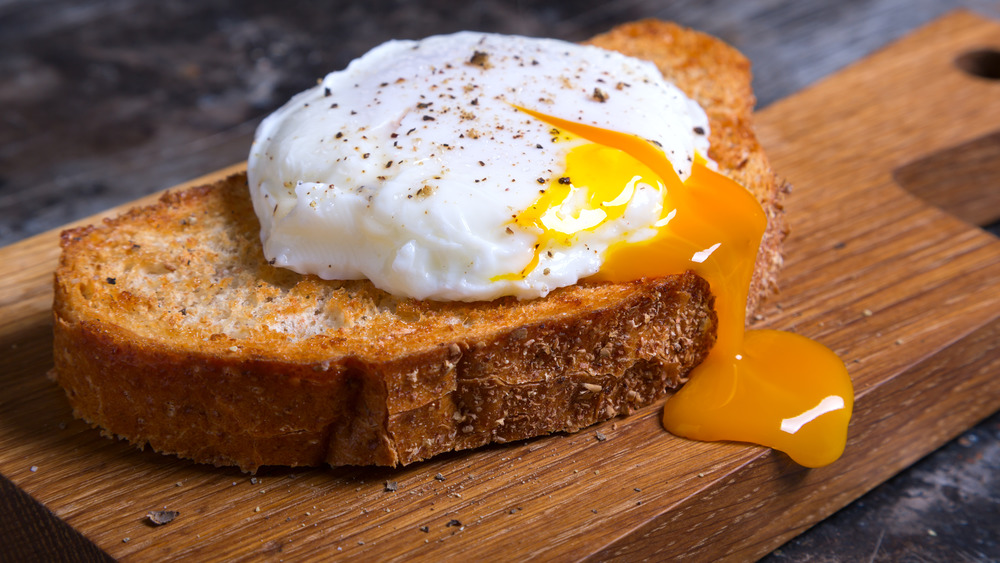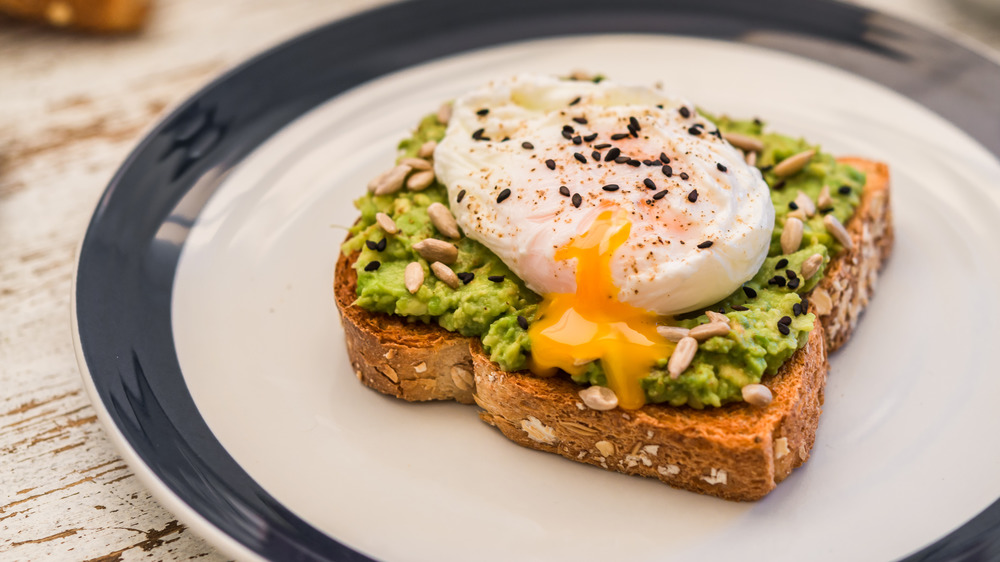You Might Want To Rethink Using Vinegar To Poach Eggs. Here's Why
What would breakfast be without the ever versatile and humble egg? Insider reports that humans have been eating eggs (or a version of it) since about 7500 BCE. The ancient Egyptians were said to have used eggs in offerings to their gods, while ancient Romans (the first to implement the concept of three meals a day, per Bon Appétit) enjoyed them at breakfast time, per Insider. With such a lengthy, delectable, and appetizing history, folks everywhere have been able to enjoy this culinary staple in a myriad of ways. From the fermented Chinese Century Egg to Mexico's Huevos Rancheros to just a simple scrambled egg, there is no wrong way to enjoy an egg.
While everyone is familiar with the simple techniques used to make something like scrambled eggs, hard-boiled eggs, or fried eggs, most shun another simple version of the egg — the poached egg. For many, poached eggs seem to be the most finicky and most daunting of the egg-making techniques, as it is perceived that much is required to make them. But a Food52 report asserts quite the opposite. The publication notes that to make a poached egg all you'd need is one egg, water, and a pan, leaving out one well-known and somewhat controversial ingredient in the process: the vinegar.
Adding vinegar messes with the egg poaching process
Appeasing A Food Geek notes that adding vinegar to the water as you're preparing to poach an egg is likely one of the more controversial aspects of the process, as there is much debate on whether it should be added or not. Sauder's Eggs asserts that adding the vinegar to the water is in fact not entirely necessary to producing a perfectly cooked and beautiful poached egg. The company calls adding vinegar to the water a major myth, also noting that the vinegar will not only make your eggs taste like vinegar, but also make your home smell like it.
The Food52 report adds that adding vinegar forces the egg whites to finish cooking before the yolk is ready, as yolks cook slower. It also alters how the texture of the egg whites once cooked, making them tougher and chalky. Food52 recommends a technique that similarly follows the "set it and forget it" methodology: heat the water to a gentle simmer, drop in the egg, and then come back for it within three to five minutes. The publication states that seasoning the water, with either vinegar or salt, is not necessary, and can be done once you're ready to eat the egg.

